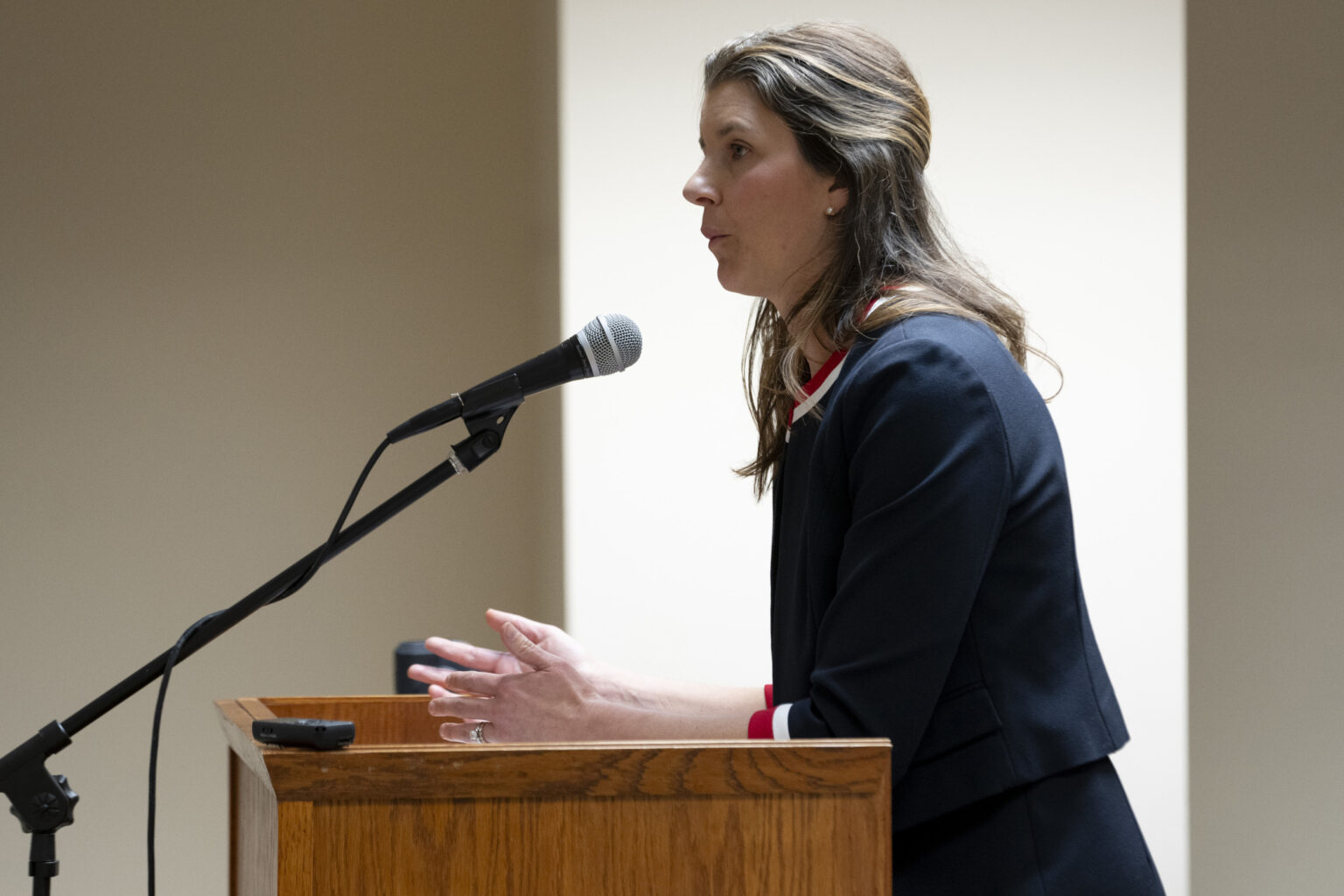The Senate has confirmed President Donald Trump’s first judicial nominee of his second term, approving Whitney Hermandorfer to serve on the Sixth U.S. Circuit Court of Appeals. The 46–42 vote fell strictly along party lines.
Hermandorfer’s confirmation underscores Trump’s continued effort to shape the federal judiciary, a campaign that defined much of his first term. Under Trump’s previous administration, the Republican-controlled Senate confirmed 234 federal judges, including three Supreme Court justices. Democrats responded during President Joe Biden’s term by confirming 235 judges of their own — a record that Trump is now seeking to surpass.
Unlike the start of his first term, when Trump inherited more than 100 judicial vacancies due to the GOP-led Senate’s obstruction during President Barack Obama’s final years, he now faces a slimmer number — 49 vacancies out of nearly 900 federal judgeships. Still, Senate Majority Leader John Thune has vowed to press ahead with confirmations, noting that although there are fewer openings this time, the Republican-led Senate will prioritize moving nominees swiftly.
What to Know About Whitney Hermandorfer
Whitney Hermandorfer, born Whitney Dianne Downs in 1987 in Clearwater, Florida, earned her undergraduate degree from Princeton University in 2009, graduating summa cum laude with a concentration in sociology. She went on to receive her Juris Doctor from George Washington University Law School in 2015, where she served as editor-in-chief of The George Washington Law Review and was awarded the John Bell Larner Award for achieving the highest cumulative GPA in her class.
Following law school, Hermandorfer began her legal career at the Washington, D.C., firm Williams & Connolly, where she worked as an associate specializing in appellate and administrative law.
Hermandorfer previously served as director of strategic litigation for the Tennessee attorney general, where she defended several of Trump’s policies, including efforts to end birthright citizenship and support for the state’s near-total abortion ban.
Critics of Hermandorfer’s nomination have pointed to her limited courtroom experience — she graduated from law school just ten years ago — and what they view as a deeply ideological background.
Her record drew sharp criticism from Democrats and progressive legal groups, who labeled her views extreme and pointed to her office’s defense of Tennessee’s stringent abortion ban. Prior to that role, Hermandorfer clerked for three conservative U.S. Supreme Court justices — Samuel Alito, Brett Kavanaugh and Amy Coney Barrett.
At her confirmation hearing, Democratic Sen. Chris Coons of Delaware questioned her qualifications, citing the “striking brevity” of her litigation record. Sen. Dick Durbin of Illinois, the top Democrat on the Judiciary Committee, accused Trump of valuing personal loyalty and political alignment over judicial independence.
The Sixth Circuit covers parts of Kentucky, Michigan, Ohio and Tennessee.
What Happens Next
The Judiciary Committee is also preparing to vote on additional nominees, including Emil Bove, a senior Justice Department official and former Trump attorney nominated for the Third Circuit. Bove’s nomination has drawn scrutiny following allegations from a whistleblower who claimed Bove suggested the administration might need to defy judicial rulings. Bove has denied the accusation and instead criticized the FBI for “insubordination,” claiming agents refused to identify those involved in the Capitol riot investigation and that he dismissed prosecutors tied to the Jan. 6 cases.
This article includes reporting by the Associated Press.
Read the full article here


